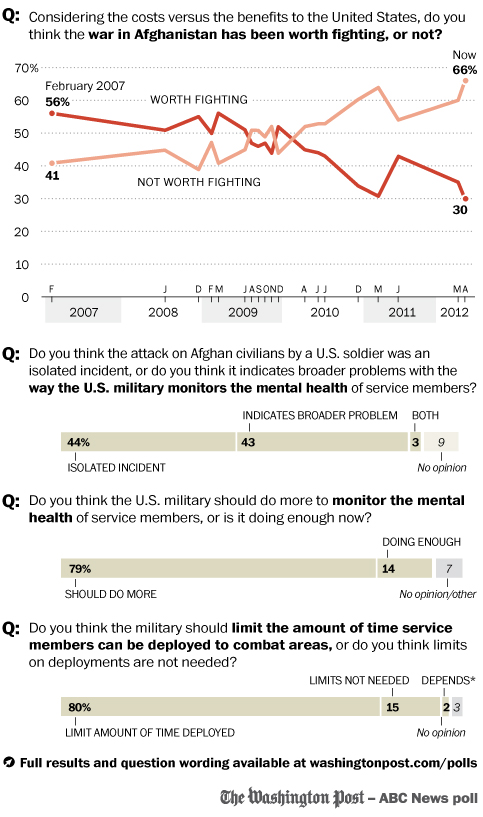The Pakistani Parliament just released their Guidelines for Revised Terms of Engagement with USA/NATO/ISAF. It states flatly that “Pakistan’s sovereignty shall not be compromised.” And that includes no more drones.
The US footprint in Pakistan must be reviewed. This means (i) an immediate cessation of drone attacks inside the territorial borders of Pakistan, (ii) the cessation of infiltration into Pakistani territory on any pretext, including hot pursuit; (iii) Pakistani territory including its air space shall not be used for transportation of arms and ammunition to Afghanistan.
This should not come as too much of a surprise. Pakistani authorities have been saying as much for months, especially after U.S. warplanes killed 24 Pakistani soldiers at an outpost in the Mohmand Agency last November (this document says those responsible for the attack “should be brought to justice”). Military supply routes to NATO troops in Afghanistan have been closed to the U.S. since then and, even though the Obama administration restarted the drone program in January, Islamabad has consistently condemned them as “unlawful.” Back in December, Pakistan held a high-level conference with the explicit aim of rethinking the U.S.-Pakistani relationship.
The last decade of U.S. war in Af-Pak has not been good for Pakistan. The war – and especially Obama’s surge in 2009, which Islamabad opposed – has dramatically increased militant activity along the Durand Line and severely destabilized the state’s security situation, including unauthorized incursions of U.S. troops on Pakistani soil. Added to this is of course the Obama adminstration’s institutionalization of extra-judicial execution and mass murder of innocent men, women, and children in the drone war. The high-end estimate for total casualties in the U.S. drone war, according to the Bureau of Investigative Journalism, is 3,097, including up to 811 reported civilians (at least 175 of them children). There are few bi-lateral relationships that would tolerate this.
Washington’s aims in Afghanistan and Pakistan have run counter to Islamabad’s interests since the very beginning. Even prior to the U.S. invasion, Pakistan has preferred Taliban authority in Afghanistan to help counter Indian influence and facilitate commerce between Central Asian states and Pakistani ports. While the decision-makers in Pakistan pretty much view the Af-Pak border as an illegitimate, arbitrary creation of the British after WWII, they seem willing to accept whatever corrupt, cockamamie government in Kabul Washington “leaves behind.” They probably prefer some kind of power-sharing deal with the Taliban, so that the ISI has at least half their work cut out for them trying to peddle Taliban influence from behind the scenes.
The Obama administration has been losing its grip in Afghanistan in parallel with Pakistan. They seem to have two points of leverage over Pakistan at this point: exorbitant inflow of military and economic aid and India. More than $8 billion dollars has been allocated to the Pakistani government since 2009, and another $2.3 billion is slated for 2013. This is obviously a huge sticking point for that supremely corrupt military regime. China appears trepidatious about filling that role as Pakistan’s lonely ally against its archenemy India. So, as strong as these Revised Terms of Engagement are, Pakistan probably isn’t willing to dispel America just yet. Indeed, the statement says that the “US-Indo civil nuclear agreement” is unfair unless Washington is prepared to do the same with Pakistan.
This analysis is revealing because it becomes clear very quickly that very little of this has anything to do with the U.S. and that a decade of turbulent, savage, murderous, misguided engagement in Afghanistan-Pakistan has been damaging and counterproductive. In the context of an ever-expanding global military empire, decade-long net losses shouldn’t deter the necessity of hegemonic state policy. But any sensible foreign policy should take heed of Pakistan’s new stay-out-of-our-affairs declaration. In fact, a similar approach of not trying to militarily dominate another state should be adopted for Afghanistan. And India, for that matter. China too.




